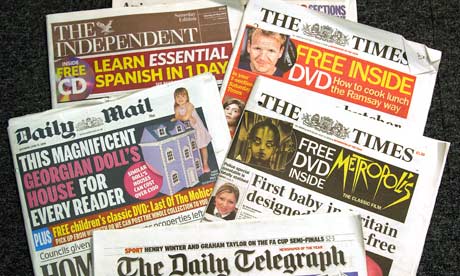
The hacking scandal at News International, sparked by the investigative work of reporters Nick Davies and Amelia Hills of the Guardian, has had a profound effect on the culture of newspapers. This visible shows the multi-skilled media industries have become independent large organizations.
But according to reports recently something else fundamental has also shifted in the past year. In the UK and US, trust in the media has actually increased. People are more likely to believe what their read in the papers, online and what they are told on the TV bulletins.
The 2012 Edelman Trust Barometer sees an unprecedented nine-point global decline in trust in government. There is still a yawning trust gap for business. While traditional media sources are still the most trusted, the diversification of trusted media sources continues.
The key findings of the Edelman Trust survey, an annual exercise which surveys 25,000 people in 25 countries about their trust in the media, government and business, reveals that while people in the UK are increasingly skeptical about politicians and business leaders, the opposite is true of the media. I think it is also most true in all countries more like a monopoly where one dominates over the other in government when responding to the media and the opposite remains silent.
But according to reports recently something else fundamental has also shifted in the past year. In the UK and US, trust in the media has actually increased. People are more likely to believe what their read in the papers, online and what they are told on the TV bulletins.
The 2012 Edelman Trust Barometer sees an unprecedented nine-point global decline in trust in government. There is still a yawning trust gap for business. While traditional media sources are still the most trusted, the diversification of trusted media sources continues.
In fact, social media, which consists of social networking sites, content-sharing sites, blogs, and micro blogging sites, saw the biggest percentage increase in trust among media sources. And for the fifth year in a row, NGOs are the most trusted institution in the world.
The key findings of the Edelman Trust survey, an annual exercise which surveys 25,000 people in 25 countries about their trust in the media, government and business, reveals that while people in the UK are increasingly skeptical about politicians and business leaders, the opposite is true of the media. I think it is also most true in all countries more like a monopoly where one dominates over the other in government when responding to the media and the opposite remains silent.
A breakdown of the results of the survey can be found in here and this is the main table (apologies for image quality) from this presentation: The Edelman Trust Barometer has been researching and reporting on trust in institutions worldwide for 12 years. From this research the company found a massive decline in trust.
Historically, this company measured trust as a single data point or metric, relying on informed public's to align understanding of this elusive commodity. The survey has now expanded to include 25 countries around the world and responses from the general public. Our approach has also evolved, allowing us to measure trust against 16 key drivers – the core attributes proven to reinforce and build trust in an industry or business.
This brings new scientific precision to the largely intuitive art of assessing why and to what degree people trust a given, corporation or industry. Having this quantifiable information makes it possible to use the “Trust Drivers” as a baseline for comparing one company’s trust level with another and within a given industry.
Access to this new level of precise information also allows them to pinpoint specific gaps in a company’s trust profile (comparing importance of said attribute against actual performance).
To be precise I think that this kind of measurement should be done in the Pacific Island Countries so that people really know what type of media organizations inform them, how these media organizations view their countries, governments, businesses and citizens.
Black on red is very hard to read. This sentence is gibberish: "This visible shows the multi-skilled media industries have become independent large organizations." You should link to a news story that is central to your analysis.
ReplyDelete